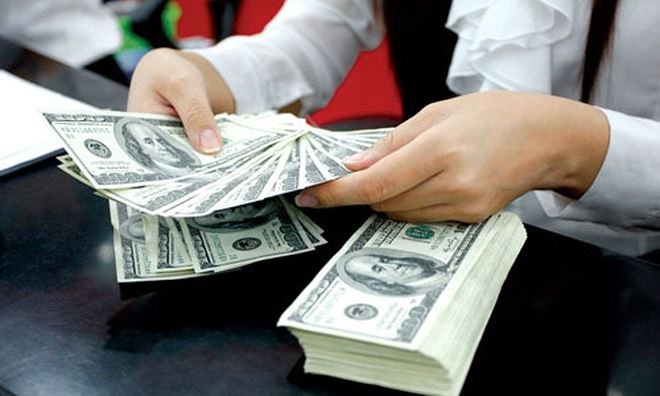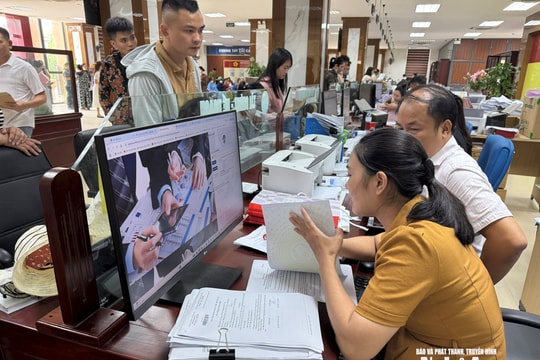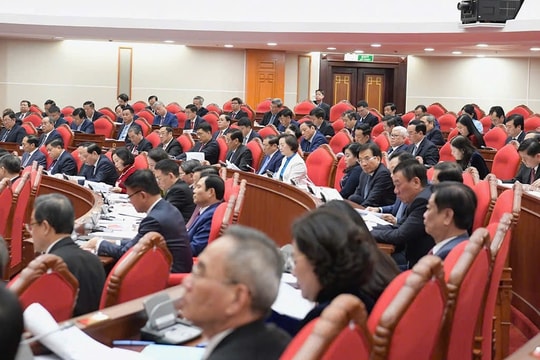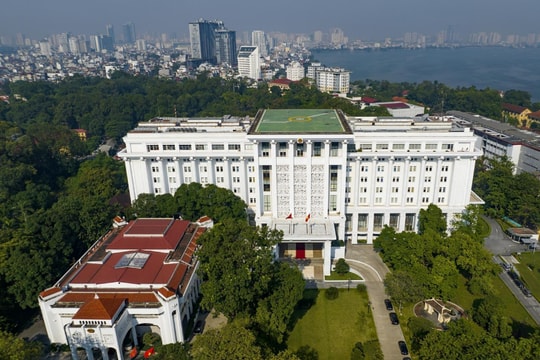Which businesses are eligible will have their foreign currency loans extended?
From January 1, 2019, the State Bank of Vietnam will continue to extend USD loans according to the draft Circular amending and supplementing a number of articles of Circular No. 24/2015/TT-NHNN. This is a regulation on foreign currency loans of credit institutions and foreign bank branches to resident customers. So which businesses are eligible to be approved for loans?
According to Mr. Nguyen Quoc Hung - Director of the Department of Credit for Economic Sectors - State Bank, there are three newest points in the draft:The first,Short-term loans for importing goods and services for domestic needs are implemented until March 31, 2019.Monday,Medium and long-term loans for import payment, effective until September 30, 2019.Tuesday,Short-term loans to pay domestic costs for production and business of export goods are not limited in time (previously regulated until December 31, 2018).
According to this draft circular, credit institutions are allowed to consider and decide to lend capital in foreign currency to business customers to meet short-term capital needs domestically to implement plans to produce and trade export goods through Vietnam's border gates, provided the borrowing customers have enough foreign currency from export revenue to repay the loan.
 |
| The State Bank is considering loosening short-term foreign currency loans to support export businesses at the end of the year. |
Upon loan disbursement, the enterprise must sell the borrowed foreign currency back to the credit institution or foreign bank branch that provided the loan in the form of spot foreign exchange transactions, except in cases where the customer's loan demand is to make a payment transaction where the law stipulates that the transaction currency must be in foreign currency.
According to Mr. Hung, when considering the plan to amend Circular 24, the State Bank of Vietnam determined to continue providing short-term foreign currency loans, at least in 2018, to support production and business enterprises, especially export enterprises. The general and long-term orientation is to continue to limit this credit channel, following the roadmap of gradually shifting borrowing relationships to buying and selling.
According to Mr. Le Dang Doanh - Economic expert, the stable USD/VND exchange rate in recent years has facilitated business activities of enterprises, especially export enterprises. In addition, the USD lending interest rate is much lower than the VND lending interest rate, which has increased the demand for USD loans of enterprises to reduce interest costs.
According to the State Bank, by the end of November 2018, for USD, short-term lending interest rates were generally at 2.8 - 4.7%/year, medium and long-term lending interest rates were at 4.5 - 6%/year. For VND, lending interest rates were generally at 6-9%/year for short term; 9-11%/year for medium and long term. Thus, the lending interest rate difference between VND and USD is at 3.5 - 5%/year.
According to financial expert Nguyen Tri Hieu, with the interest rate difference between USD and VND, businesses that borrow foreign currency will benefit more. They can borrow foreign currency at low interest rates, then sell it for VND to buy domestic raw materials, then export goods to get foreign currency to pay off bank loans. The above move by the State Bank shows that the monetary policy is flexibly managed by the State Bank to support import-export businesses.
With the amendment and supplement to Circular 24, this is the fourth time the State Bank has extended the term for short-term foreign currency loans to meet domestic payment needs.
However, after the above deadline, what will happen if businesses are not allowed to borrow foreign currency? Will businesses switch to borrowing VND? Dr. Phan Minh Ngoc said that it is impossible, because businesses that borrow foreign currency to import need foreign currency, not VND. Therefore, if they cannot borrow foreign currency, they will be forced to stop importing. Of course, for many import businesses, this is impossible, so they are forced to buy foreign currency in the banking system and possibly on the free market.
"The purchase of foreign currency to meet the need to pay for legal import orders is not prohibited by law and will certainly be fully met by banks. Therefore, import enterprises will not be negatively affected by the ban on foreign currency loans by the State Bank. As for the whole economy, because import enterprises do not switch to borrowing VND for import, VND lending interest rates will certainly not increase," Dr. Phan Minh Ngoc emphasized.



.jpg)




